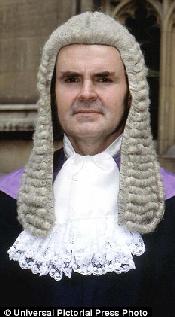In an official Guardian editorial on June 9th (The Guardian view on President’s Erdogan’s lies: an apology would be welcome) responded to pre-election comments by Turkey’s leader about the Western media.
Last week, as the election campaign neared its climax, Turkey’s president decided to attack the international media as well as the Turkish…Then he turned on the New York Times, which he said was run by “Jewish capital” and was “raging against me”
Then the president attacked the Guardian. “Do you know what an English newspaper is saying?” Mr Erdoğan told an AKP rally in Ardahan. “It says ‘poor Muslims who are not entirely westernised cannot be allowed to rule their countries on their own’.” It was shameless, Turkey’s leader said. He then warned the Guardian: “Know your place.”
Mr Erdoğan’s charge against the Guardian is without any foundation. The Guardian did not say or print the words that Mr Erdoğan claimed. Nor did it say anything like them…
The allegation that the Guardian said poorer Muslim Turks cannot be allowed to rule their own country is a mischievous lie. It appears to have been concocted by a newspaper columnist favourable to the president, was then picked up by others, before spreading quickly on social media in Turkey. Before long it found its way – wholly unchecked – into Mr Erdoğan’s speech in Ardahan, which gave the lie a fresh turbo-charge of publicity.
Now, for the finale:
Journalists have to be careful with their choice of words. When they get something wrong, as they sometimes do, they must correct it as soon and prominently as possible. In a serious case, they must also apologise. As the Guardian’s longest-serving editor, CP Scott, put it, facts are sacred. Politicians too must be careful with their words. They also must get their facts right. Mr Erdoğan got his words and facts badly wrong. Perhaps an apology is in order as well.
We agree wholeheartedly that journalists must be careful with their words and when they make a mistake must correct it as soon as possible and consider issuing an apology.
No doubt, it’s lost on editors how many Jewish Britons feel the sting of Guardian reports, commentaries and cartoons which include false claims, egregious distortions or smears against Israel and the Jewish community, and believe that the media group is far too reluctant to issue corrections and apologise” for such defamatory allegations.

Indeed, as we’ve noted previously, a 2014 poll indicated that 82% of British Jews believe that such media bias against Israel fuels antisemitism.
Whilst it’s at least conceivable that their experience being the victim of a vicious smear would serve as a teachable moment for editors on the need to take seriously complaints from Jews regarding their coverage of Israel, the media group’s decision to choose as the Guardian’s new editor-in-chief a woman personally responsible for spreading anti-Zionist propaganda does not leave us very hopeful.




